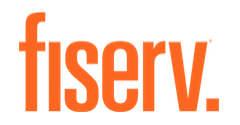Maximizing TFS in the Enterprise

The Client’s Challenges
Have you ever paid a credit card bill at a department store? Ordered a movie from your hotel room? Or, set up a recurring billing payment from your checking account? If so, then chances are your transaction was facilitated by Fiserv. The reach and importance of this financial services company can hardly be overstated.
The vision of Fiserv’s Configuration Engineering (CE) management team was transform the team into a Center of Enablement. The CE team would be responsible for articulating and guarding the framework that would enable developers to deliver their products quickly. To that end, a DevOps Advisors consultant was engaged to show them how TFS could be much more than a version control tool.
We showed them in hands-on fashion how to help each constituency in doing their part to automate the build activities; to achieve better coding habits over time; to improve the source code environment; and to establish automated, repeatable deployment methods for the entire pipeline.
What We Did
We began with a thorough assessment, consisting of visiting different members of the configuration engineering, database, QA, and Development. Our background with all versions of Visual Studio and Team Foundation Server (TFS), with installer technology, and with newer automated tools like CA Release Management (formerly known as Nolio) enabled me to provide hands-on assistance throughout the engagement.
After the assessment period, DevOps Advisors developed a custom training curriculum to help Fiserv grasp the TFS ecosystem and begin to make immediate use of the features. The training used their own applications, not sample, make-believe applications. Topics of the training:
1. Version Control Administration (Groups, roles and teams; AD groups; the admin console; the project template; work item templates; syncing with external tools like ServiceNow, and HP Quality Center)
2. Orchestration of continuous integration and continuous delivery (adding layers to continuous integration, such as executing unit tests; code analysis)
3. Source code and Environment Management (containers for 3rd party references used by .NET and Java code; how to discover and fix code merge issues; branching strategies that are best while refactoring source code, and more sophisticated strategies afterwards.)
The Impact
Fiserv management and their implementation partners at HP Enterprise and Collabera were effusive in expressing their satisfaction. For one line of business alone, the turnaround time of build requests will now be 83% faster, taking 1 hour instead of 6. Automated notifications and assignment of tickets will take the place of waiting for someone to compose and email and request/obtain signoffs. We also provided them a matrix of the weekly categories and sequence of activities that will replace those manual steps.
Fiserv no longer has to suffer a massively complex process in order to comply with Payment Card Industry (PCI) requirements, which are designed to protect credit card transactions. They also have a single process for all the lines of business to manage building and deploying their apps. Hojefa Vohra from Collabera noted, “We were proud to receive a copy of your recognition. We want to thank you on behalf of Collabera for your outstanding contribution to our client’s project. It is because of outstanding consultants like you that we are able to sustain in a challenging market. Please accept our appreciation for your efforts. We truly look forward to a lasting relationship…Job well done.”

